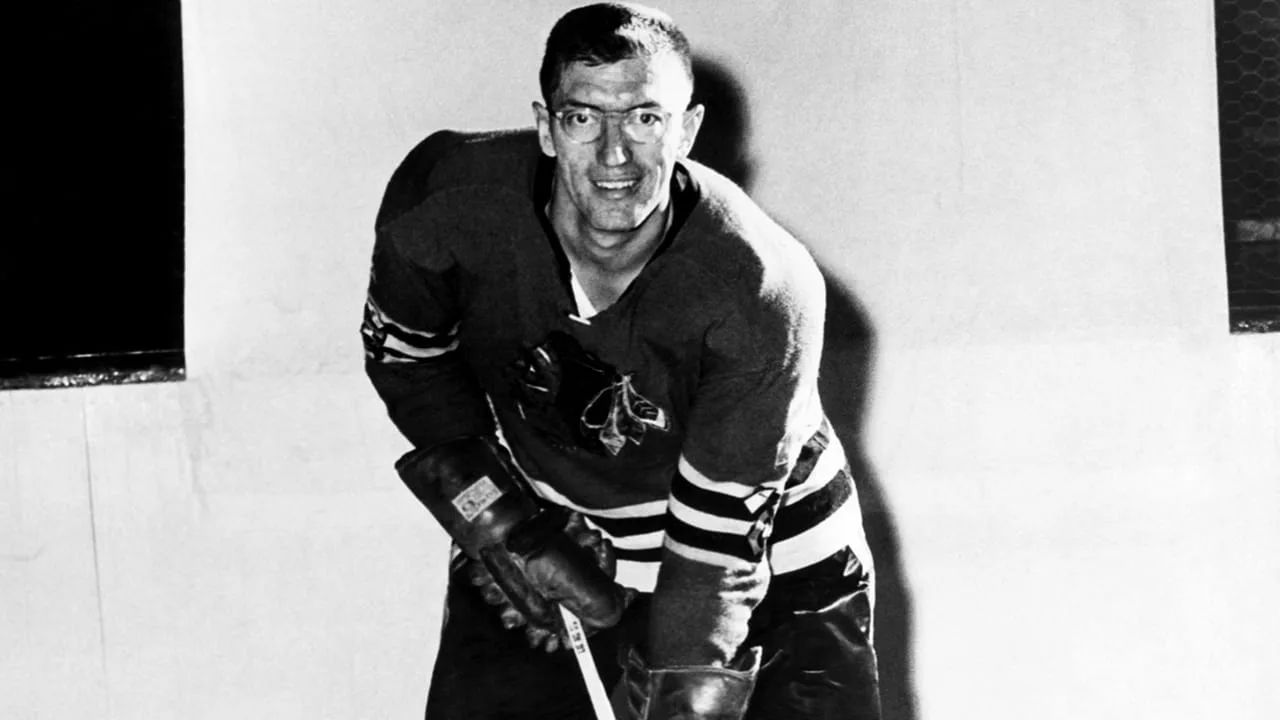“I loved playing in front of Glenn,” said Arbour. “Nobody knew it at the time, but he was the one who invented the ‘Butterfly’ style of goaltending. He was as good as they came. Like an iron man between the pipes.”
So good, in fact, that the Hall-Arbour axis became an integral part of Chicago’s 1961 Stanley Cup-winning team. For extra added revenge, Radar’s Hawks beat Jack Adams’ team, the Red Wings in six games. Despite Arbour’s significant role in helping Chicago gain the title, the Black Hawks allowed him to be claimed by Toronto in the Intra-League draft. While it may have been taken as a slap at Al, he turned it into a “Thank You” card for his new boss, George (Punch) Imlach.
Respectful and appreciative of veteran players, g.m.-coach Imlach stacked his blue line corps with such senior NHL citizens as Tim Horton, Allan Stanley and Arbour. This time Al was as pleased as punch — with Punch — as the Leafs won their first Cup in 11 years.
“I appreciated Al,” said Imlach. “Who wouldn’t with his work ethic? But I had other younger guys coming up who could play more; Kent Douglas, Carl Brewer and Bob Baun.”
Not a problem; at least not for Al. Demoted to Toronto’s AHL farm team in Rochester, he led the Amerks to both the regular season championship and the Calder Cup.
“Sure, I was getting older,” Radar recalled, “but I still enjoyed the game and felt that I could contribute.”
Then, he got big-time lucky. When the NHL expanded from six to twelve teams in 1967, the St. Louis Blues needed defensemen. The Mound City outfit’s new general manager Lynn Patrick chose Arbour for his starting blue line unit.
“It was a renaissance for Al,” said Zack Weinstock, my co-author on the Islanders-Rangers Rivalry book. “He went from Original Six afterthought to Expansion darling.”
At age 35, Arbour not only emerged as the Blues best defenseman but also team captain. His latest coach, Scotty Bowman, appreciated Radar more than any mentor with whom Al had previously worked and the two made beautiful music together.
In 1968, the Blues gained a playoff berth and reached the Stanley Cup Final against the Canadiens. Although the Habs beat St. Louis in a four-game sweep, every contest was decided by a single goal. Under Arbour’s captaincy, St. Louis reached the Final again in 1969 and 1970, bowing out each time in four straight. No question, his playing days were numbered and when Bowman chose to move into a managerial role Arbour became head coach in 1970.
“Scotty upped and went…
Click Here to Read the Full Original Article at "ice hockey" – Google News…

